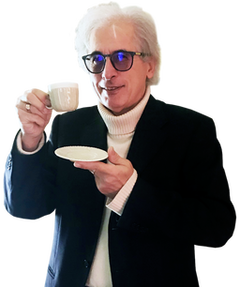The taste / the aroma / the flavour:
the three-way duel!
It is spring in Rome and I am sitting at a table outside a bar in Piazza Navona, enjoying the sight of tourists strolling the square and gazing in awe at the wonders of the Eternal City. A waiter comes and smiles at me in his white jacket as he leaves the espresso coffee I ordered on the table, with a glass of water and a chocolate sweet. Determined to linger in this moment of peace as I drink my coffee, I take a sip of water first, an essential gesture to rinse my mouth from any other flavour that would spoil tasting my coffee. It is now time to enjoy my coffee. I draw the cup, which has been pre-heated to preserve the ideal temperature of the coffee, close to my nose, not to my lips yet, so that I can enjoy the intoxicating smell of the coffee first, before drinking it. I inhale, slightly (mind me, I am not sucking it in as if I were doing an aerosol inhalation!), and let the aroma of my coffee burst into my nostrils and rush to my brain.
Only then do I allow myself my first sip of coffee.
The way Italians like to drink coffee often intrigues foreigners that visit Italy. Anyone used to drinking coffee “by the litre” from huge mugs is baffled by the sight of a tiny cup filled with just a few drops of a dark liquid covered by a streaked veil of amber colors that we call "coffee".
Yet, that tiny cup contains a treasure. A rare, precious and unique pearl found in an ocean full of ordinary, though respectable, trinkets.
Back to my coffee again. The first sip is critical. You are not supposed to swallow it right away, but rather let it rest for a second in the mouth, so your taste buds take in the flavour.
Espresso coffee can be very good, other times fair, or only decent. This one passes the test – it is excellent and I am enjoying tasting it. Two or three more sips and my coffee is finally off to other destinations.
TASTE / AROMA / FLAVOUR:
In a memorable scene from The Good, The Bad and The Ugly, Sergio Leone and Ennio Morricone gift us with an epic showdown, one of the most famous duels (actually a three-way duel, since they were three) in the history of western movies.
Going back to our coffee outside of the bar in Rome, was it TASTE, AROMA or FLAVOUR that won the duel? Obviously none of the three! Because it was the perfect balance between flavour, taste and aroma that made it special.
Just as the three duelists in the movie were so dissimilar, these three elements our senses perceive are also very different from each other. Are they synonyms? Do we use them with the same meaning?
We can certainly say that a coffee can have an excellent taste, an excellent aroma and an excellent flavour. Yet, delving deeper into the matter, we realise they are not the same thing.
What may seem like an idle literary exercise done on a rainy day to kill some time may actually lead to a few considerations that could turn out to be useful in planning effective marketing: for instance, the aspects I should focus on to promote my coffee.
In Italy, this is no trivial matter! Coffee making and trading is one of the liveliest businesses in the food sector.
AROMA
Aroma hits the olfactory sense first. It is a very sound aspect. We could also say that it provides a “solid” olfactory perception, that being no paradox. The aroma of coffee that enters my nostrils binds to the olfactory receptors and rushes to my brain, which turns the feeling into something physical in an infinitesimal fraction of time. You can actually "feel" the coffee, or be it a glass of Barolo wine, a lasagna with meat sauce, a freshly baked pizza, in a very physical dimension. Aroma is very strong and compulsive: so much so that it forces us to instantly acknowledge it. I bet everyone of us has experienced the spellbinding delight of smelling the scent of freshly baked bread when passing by a bakery on the street. Our instincts make us turn around and rush into the shop to dig into a fresh bread roll - It is a vital impulse. In conclusion, if I had to give a definition of "aroma" I would go for “olfactory physicality”.
TASTE
Taste is when I eat food, or drink something, especially if I'm hungry or thirsty, thus ending the fasting time that separates me from my last meal.
The sense of taste could also be defined as a tester, a tool we have that instantly gives us an analytical snapshot of what we are eating. In this case, the receptors involved are oral, found on our tongue especially. Our tongue is the first barrier that food meets. In a fraction of a second, it sends important information to us, also for our protection.
And this satisfies a primary need and also gives me utter gratification. In this sense, tasting can have the same intensity whether I eat a simple piece of fresh, warm and crunchy bread or some nice tagliolini pasta with truffles. As we said, tasting does not just satisfy a need, but promotes a feeling of well-being throughout your entire body, which is experienced both physically and emotionally.
In his famous novel "Three men in a boat (to say nothing of the dog)", by J.K. Jerome, a masterpiece of English humour, the protagonist (Jerome himself) is sitting at a restaurant after his journey on the Thames with two friends and a dog sitting. After enjoying his meal, he finally lays his knife and fork on the table, stretches out his legs under the table and looks at the world with indulgent eyes. This final passage of the novel is beautiful because it describes how that meal, so enjoyable in its elements, gave him peace, well-being and joy.
I think defining taste requires to join physiology with psychology. Taste certainly starts with sensorial perceptions triggered by the receptors already mentioned for aroma. Also taste reaches the brain, but also goes beyond it. It is a transfer process that the little expertise I have on these matters does not allow me to describe. My sensorial perception continues the journey to reach a psychic dimension that includes all my life and essence, it processes it and returns it to the body, from which it then sets off again to run the same lap of the track again: like a Ferrari in a Formula One racetrack!
Hence, my definition of TASTE is “olfactory sensorial psychicity”.
FLAVOUR
“Salt gives flavour to life”, according to an old Italian saying. Much less romantically, my doctor firmly advises me that "salt raises your blood pressure". For someone like me, who has always added salt to food automatically without tasting it first, it was a bad blow. In English, the terms TASTE and FLAVOUR are almost synonymous. In Italian this is not the case: taste is "gusto", flavour is "sapore" and the terms have different meanings. To me, flavour is precisely salt, the ingredient that can add “something more” to my meal. If I simply grill a pepper, I will have a slice of plain, grilled pepper, which might be good for many already. But if I dip my slice of pepper in a sauce made of garlic, salt, pepper and extra virgin olive oil, well, then the flavour will be very different.
Our tongue does not just make you feel the pleasure associated with food, but also possibly defends the body from something harmful we might swallow. When we introduce something with a bad flavour into the mouth, the reflex to spit everything out is triggered because the message implied with the bad flavour is that the product may have expired.
Conversely, a nice flavour tells us we ought to welcome the food, thus driving it further along the path of enjoying eating it, which is then concluded with digesting it. Digestion is strongly influenced by the flavour of the food we eat. I reckon we can all agree on this if, for instance, we recall when, out of courtesy, we have been forced to eat food we do not like the flavour of.
We could add a lot more on flavour, mainly because it is something very personal, a perception built on what we experience in life, how we have perceived the food and drinks we have personally tasted. For instance, like some food from some exotic country far away from me may have a flavour impossible for me to accept, the food that everyone eats in my country might instead be turned down in another country. Therefore, my definition of flavour is my sensorial tester.
CONCLUSION
Obviously enough, this article does not wish to be a scientific piece, nor do I work as a fashion influencer. I am a reporter for a publishing house specialising in scientific contents, including nutrition, and work is also about all that revolves around our publication, like attending events, symposia, meetings experts, both academic and from the industry. I can write this article because of meeting and networking with the true experts, and then processing all the information critically, as I am used to doing. Critical thinking is important because it lets you experience even paradoxical situations with a light heart, like that time when, in an important trade fair on health ingredients, the representative of a company presented me with a no sugar, no salt, no cholesterol, no fat and (sadly concluding) no taste product. With this article, I therefore want to express a few thoughts on a sensorial aspect that touches us and involves us much more than we can imagine. A good balance between aroma, taste and flavour is achieved also through proper and healthy eating habits.
Balanced eating supports the proper functioning of our wonderful bodies and is not just limited to that. Eating inordinately and gulping down food means neither tasting food nor enjoying life, but rather doing harm to oneself and others. The language of flavours, odours and aromas is reflected into the language of life and human relationships. When aroma, taste and flavour get along well with each other, they do not meet for a duel, but join to perform a dance together. Eating well and healthily will make the dance beautiful, besides improving the quality of our very lives. And who knows? We too, like Jerome in Three Men in a Boat, might even be able to look at the world with more indulgent eyes. Comforted by this thought, I resume contact with reality. I look down at my table and see the chocolate that the waiter left me. I usually cannot resist chocolates and, in fact, my mouth instantly starts to water! In a second, the chocolate sweet vanishes into my mouth and the whole taste-processing cycle is triggered once again. As my taste buds throw my brains back into extreme delight, a thought just pops into my head! Maybe, the mere LOOKING at something should also be included in the TASTE / AROMA / FLAVOUR dynamics? And perhaps, this is turning into a four-way duel in the end!
We will delve into this at the next coffee break!
Giulio Fezzardini
TKS Publisher
Italy






